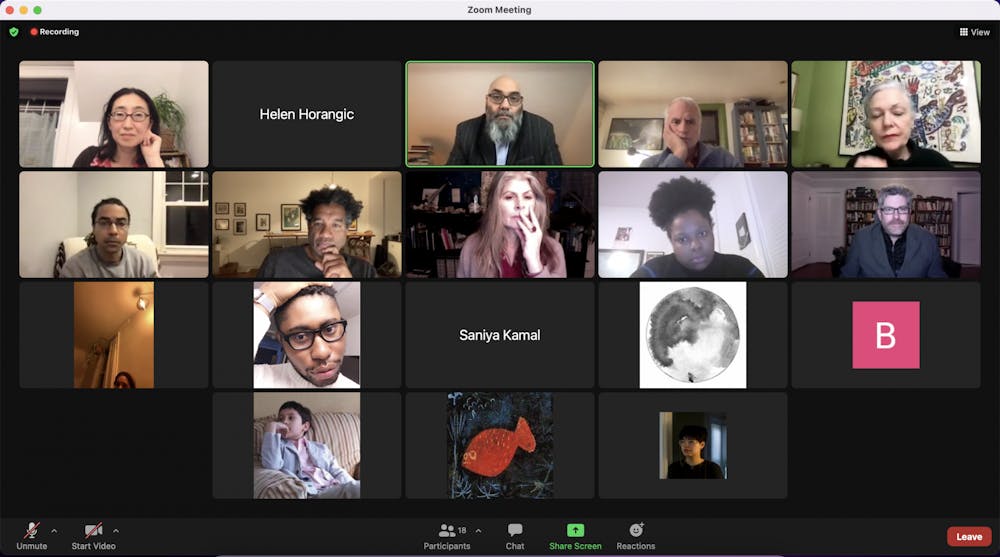Author and RISD Professor Matthew Shenoda spoke Thursday evening at an event featuring readings of his poetry, his thoughts on social equity and inclusion at RISD and everything in between.
The reading was the first installment of a new five-part virtual event series hosted by the Literary Arts department. These events will feature “distinguished artists (and) writers,” and “each visitor will present an artist’s talk with readings, presentations and/or performance extracts” in addition to discussing their field and their vision for the future of “interdisciplinary and inclusive arts,” wrote Gale Nelson, Literary Arts academic program director and the organizer of the series, in an email to The Herald.
Shenoda is currently a professor of Literary Arts at RISD, where he also serves as the vice president and associate provost for social equity and inclusion. Shenoda was introduced by poet and Assistant Professor of Literary Arts Sawako Nakayasu, who noted his list of achievements and accolades: Winning the American Book Award twice, authoring a number of other poetry collections and serving in multiple editorial positions, including as the founding editor of the African Poetry Book Fund.
The American-born son of Coptic Christians, Shenoda’s written work focuses on diasporic identity and pan-Arabism. Bringing together elements of his work as both a writer and activist for social equity and justice, he began his reading with a quote from South African anti-apartheid activist Steve Biko that framed the rest of the talk: “It is perhaps fitting to start by examining why it is necessary for us to think collectively about a problem we never created.”
Shenoda said he aims to use his voice to further the collective conversation around striving toward social equity in a post-colonialist world.
He told the audience that one of the central harms of colonialism is “the creation and dissemination of simplistic binaries to describe the human experience. Dominant and often totalizing representations in their myriad forms work as tools of imperialism and colonization rather than as a tool of humanization and education,” he said. In his work for social equity and inclusion at RISD, he said he works to reverse these trends.
As a poet, Shenoda views his craft as an essential part of moving toward social equity on RISD’s campus and beyond. “I see that one of the jobs of poetry is to challenge these narratives that are all-too-often vilifying and stultifying representations,” Shenoda said. “Look at poetry as a form of representation, an alternative type of media. It is the simple daily events that center us as humans and that create the narratives and shape our identities and understandings of ourselves.”
Shenoda argues that all art, not just poetry, embodies the work of creating “a different and radical counter-ethic” around understanding each other and humanity as a whole.
“The role of all good art in relation to humanity should be to make complex the understanding of the human experience,” Shenoda said. “Artists, designers and scholars of the arts play one of the most significant roles in helping drive this work … they most deeply understand the necessary textures and ethereal complexities of the human condition, as we are so often in need of seeing things from multiple angles in order to accomplish our own work.”
Still, Shenoda included a word of warning. As both an artist and scholar of art, he expressed that “we do not take the time to understand our position in a greater context, but rather often enter into spaces with a sense of expertise that erases so much around us and diminishes our work, artistic practices and research capabilities.”
Shenoda concluded that the solution to this problem is to keep asking questions. Artists, scholars of art and people everywhere “need to ask constantly … how we can cultivate and deepen relational engagement on a daily basis, … what power the experiential plays in the shaping of society, … (and) how engaging practice, often with failure attached, makes us better.”
“The goal,” Shenoda said, “is to galvanize these questions into action, to move them from our localized spaces to wider spaces and to become greater advocates and ambassadors for what we know. Each is essential to the betterment of humanity.”





